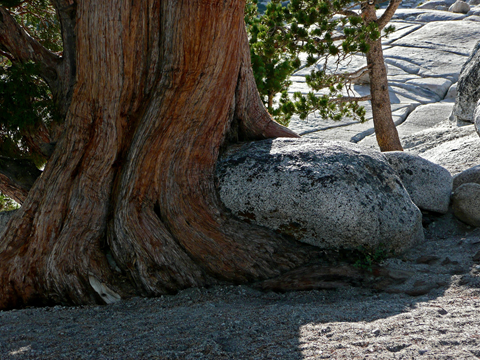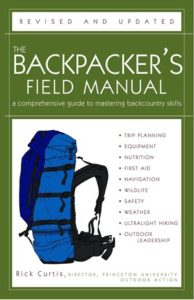After finishing a whirlwind of camp trainings to kick off the summer, I
thought maybe I could put together a top 10 list of tips for the summer
challenge course program. I am realizing that this may be a bit off the mark
timing wise as the programs are already in full swing but it could be food for
thought and reflection.
I have spent the better part of my career in outdoor education and summer
camp adventure programs. That is where I cut my teeth in the adventure world as
many of you have in the past or are doing now. In my experience, running
challenge course programs in that summer camp setting can be more of a challenge
then some programs may care to discuss. But these troubles are not relegated to
the Camp world… they are just an easy target. So hopefully, the broader
challenge course world can glean some information from below.
So here it goes… (approx.) 10 tips for the summer challenge course
program.
1. Why do you have a challenge course? This is a bigger
question than it might seem. Do you have one just because the camp down the road
has one or do you have an intentional adventure program that utilizes the
challenge course as a tool to achieve an end result. It is easy for the camp
world to get caught up in the game of keeping up with the Joneses. A challenge
course without a program is a big jungle gym with a whole lot of liability and
risk. I would repeat… Why do you have a challenge course?
2. Who is your Challenge Course Manager? If you have a
challenge course as part of your program someone needs to manage it. The
question of who is a bigger issue. This should be someone who has adequately
training in both the appropriate technical skills and in those skills necessary
as a challenge course manager. If this is the year round Camp Director, great…
make sure you have the background knowledge to make good decisions for your
adventure program… maybe check out a Ropes Course Management training in the
off-season.
3. Build a better staff, not a bigger challenge course.
Wouldn’t it be great if some of that capital development went into
staff training and development instead of building the super cool, fast,
exciting glitzy element. Make the challenge course you have the best it can be
before you go for the 600′ zip line over the lake with a ring of fire in the
middle. That translates to fund available to staff to get the training they need
to succeed.
4. Do you have a training plan for ensuring quality
programming? A camp analogy that has been kicking around lately is the
comparison of your challenge course program to your waterfront program. You
would not open your waterfront without qualified lifeguards and well thought out
procedures. We have spent considerable time coaching programs to develop the
proper procedures and training so that you can feel confident with your
challenge course staff and the program they are delivering to your clients in an
equally high risk program area. You should notice I did not say “certified
lifeguards” (but we know that is what they are). Let’s take it one step at a
time. That is a blog for another day. Certification may be a buzz in the
adventure world but the heart of the issue is quality training and thoughtful
program
5. In-house training vs. Professional training.
- Trainings by outside individuals or organizations are a vital piece of every
organization’s training plan. Additionally, in-house trainings that refresh and
re-visit the various skill sets are invaluable to maintaining good practices
among staff. However, it is not a good practice for a program to conduct
internal trainings only. Often a staff person who attends a professional
training provided by an external vendor may want to come back to train others on
her staff. Too often these efforts include only a fraction of the time and
content of the original training. They also tend to focus on technical skills
only with insufficient time spent on the broader but equally important topics
such as program design, proper sequencing, program philosophy, etc. These
“second” and “third” generation trainings can result in diminished quality over
time.
6. Where is your Annual Inspection report? Know what your
annual inspection from your qualified challenge course professional says and
make sure it does not just get filed away in an office somewhere. That
inspection report should have information to inform your program about future
repairs and maintenance issues.
7. Develop Local Operating procedures. Assure that your
program has a set of Local Operating Procedures and that all staff are well
versed in them. This is the key to continuity in the world of high turn over of
camp staff. Have your challenge course vendor look over your LOP’s and give you
suggestions. You don’t need to start from scratch either. There are plenty of
organizations who will share (attention: Shameless High 5 plug), take for
example the new High 5 Guide by
Jim Grout and Nicki Hall with an accompanying sample LOP CD.
8. Challenge course maintenance tips- More on this to come
in my next post but in addition to the annual inspection, programs should
conduct their own inspections on a regular basis, both seasonal and daily.
- On a daily basis, all staff who are facilitating on your course should be
attentive to the equipment they are using. Run ropes through your hands before
you hang them, look at carabiners and belay devices before you use them. Wear on
this hardware could be a sign of a bigger issue. - Seasonally, your course manager or some staff person who is familiar with
the course construction can due more thorough checks as many things can occur
that can alter the condition of the course between annual inspection dates.
9. Repetitive strain injury (RSI) – while this is a real
medical situation, I am using this more metaphorically. If you program design
dictates that staff members repetitively send people of the zip line for hours
on end or belay the climbing tower for hours at a time… fatigue sets in and
mistakes happen. Unchecked harness, lazy belaying, miss clips on the zip
platforms, Stuff that keeps you up at night as a Camp Director or Challenge
Course Manager. I guess this one goes back to why the “Why do you have a
challenge course?” question. 6-8 hours of trapeze jumps does not sound like
creative, sequenced programming. It sounds a bit like an amusement park.
10. Love what you do and do what you love. Okay
so I was running out of ideas here and felt obligated by society to not leave
the list at 9… had to be 10. But seriously, with all of this…this… stuff,
it is easy to forget that it is fun to run an adventure program. Fun. When all
the details are in line… we get to have fun. and get paid. Not a bad life
really.
Okay so that is 10. I hope you find some piece of information useful.
Obviously my opinions on certain subjects will be skewed by my role as a trainer
at a Professional Vendor Member of ACCT, but as I mentioned, I have spent the
larger part of the last 15yrs in Adventure in the Camping world. I hope I speak
from that perspective too.
Keep an eye out for another post soon with tips for challenge course
maintenance between inspections.
Chris Ortiz


